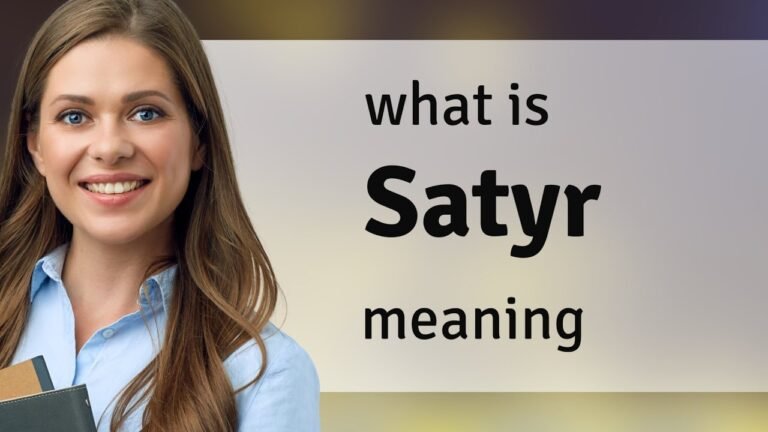Lessons from the Parable of the Unjust Steward
In the intriguing narrative of the Parable of the Unjust Steward, we encounter a tale that challenges conventional notions of morality and accountability. This story, found in the Gospel of Luke, presents a shrewd but dishonest manager who, faced with impending dismissal, cleverly manipulates his master’s debts to secure a future for himself. As we delve into this parable, we uncover profound lessons about resourcefulness, the complexities of human nature, and the unexpected wisdom that can emerge from seemingly unethical actions. Join us as we explore the deeper meanings embedded within this thought-provoking parable and its relevance to our lives today.
Advantages
- Insight into resource management: The parable illustrates the importance of wisely managing resources and being shrewd in financial dealings, which can be applied to personal and business finances.
- Emphasis on accountability: It highlights the need for accountability in one’s actions and decisions, encouraging individuals to reflect on their responsibilities.
- Lessons on foresight: The story teaches the value of planning for the future and making proactive choices to secure one’s well-being, both in financial matters and life decisions.
- Moral complexity: The parable provokes thought about ethical dilemmas, prompting discussions on morality and the nature of justice, which can lead to deeper understanding of human behavior and societal norms.
Disadvantages
- Misinterpretation of Values: The parable of the unjust steward may lead individuals to misinterpret the values associated with honesty and integrity, as it showcases a character who manipulates situations for personal gain.
- Encouragement of Dishonesty: By presenting a shrewd but dishonest character as a central figure, the parable might inadvertently encourage unethical behavior in real-life scenarios, suggesting that cunningness can be rewarded.
- Confusion Over Moral Lessons: The complexities of the parable can create confusion regarding its intended moral lessons, making it difficult for some readers to discern the positive takeaways amidst the questionable actions of the steward.
- Lack of Clear Consequences: The story does not provide clear consequences for the steward’s actions, which could lead to the perception that wrongdoing can go unpunished, undermining the importance of accountability.
- Potential for Misapplication: The teachings derived from the parable may be misapplied in various contexts, leading individuals to justify unscrupulous behavior under the guise of being “shrewd” or “wise” in their dealings.
What does the Parable of the Unjust Steward signify?
The Parable of the Unjust Steward serves as a poignant reminder of our responsibility as stewards of the resources entrusted to us. In this lesson, Jesus emphasizes the importance of how we manage our worldly possessions, referring to them as “unrighteous mammon,” which highlights their temporary nature and the need for wise administration. By acknowledging that all we possess ultimately belongs to God, we are encouraged to use our resources thoughtfully and ethically, ensuring that our actions reflect our values and contribute to a greater good. This parable challenges us to examine our priorities and reminds us that our true wealth lies not in material possessions, but in our stewardship of them.
What does the parable of the shrewd steward illustrate?
In the parable of the shrewd steward, a dishonest manager finds himself facing the consequences of his mismanagement as he is about to be fired for squandering his employer’s resources. Rather than resigning himself to a life of manual labor or begging for help, he devises a clever plan to secure his future. He reaches out to those indebted to his master and reduces their debts, effectively winning their favor and ensuring he will have allies when his employment ends.
This shrewd maneuver highlights the importance of resourcefulness and foresight, even in morally ambiguous situations. While the manager’s actions may seem unethical, the parable encourages reflection on the wise use of one’s resources and relationships. Ultimately, it serves as a reminder that the pursuit of shrewdness can yield unexpected benefits, urging listeners to consider how they navigate their own responsibilities and connections.
What moral lesson can be learned from the parable of the shrewd manager?
The parable of the shrewd manager teaches us the importance of using our resources wisely and generously, urging us to emulate the manager’s cleverness in handling the possessions entrusted to us. It calls for a thoughtful approach to life, encouraging us to invest in what truly matters and to show mercy, especially during challenging times. By embracing this lesson, we can embody the richness of grace and reflect the values of compassion and stewardship that stand the test of time.
Navigating Integrity in a Complicated World
In a world filled with conflicting values and rapid change, the pursuit of integrity stands as a guiding principle that can illuminate our path. Integrity is not merely a personal virtue; it is the foundation of trust in relationships, communities, and organizations. By committing to honesty and ethical behavior, individuals can create environments where transparency thrives, fostering collaboration and resilience even in the face of adversity.
The complexities of modern life often challenge our moral compass, making it essential to cultivate self-awareness and reflection. Understanding our motivations and the impact of our choices empowers us to navigate ethical dilemmas with confidence. By aligning our actions with our core values, we can face the pressures of societal expectations and peer influence, ensuring that our integrity remains intact.
Ultimately, navigating integrity in a complicated world requires courage and a steadfast commitment to doing what is right. As we engage with diverse perspectives and confront difficult decisions, it becomes imperative to uphold our principles and lead by example. In doing so, we not only strengthen our character but also inspire those around us to embrace integrity as a cornerstone of their own lives, creating a ripple effect that can transform communities for the better.
Wisdom in Resource Management and Choices
In an era where resources are increasingly scarce, the art of wise management and strategic choices has never been more determinante. By prioritizing sustainability and efficiency, individuals and organizations can maximize their impact while minimizing waste. Thoughtful decisions regarding resource allocation not only foster innovation but also cultivate resilience in the face of challenges. Embracing a mindset of stewardship allows us to navigate complexities with clarity, ensuring that every choice contributes to a more sustainable future. Ultimately, the wisdom in managing our resources lies in recognizing their value and harnessing them to create lasting benefits for all.
Ethical Insights for Modern Stewardship
In an era where environmental challenges loom larger than ever, the call for ethical stewardship has never been more urgent. Modern stewardship demands a commitment not only to sustainable practices but also to a profound respect for the interconnectedness of all living systems. By embracing ethical principles, individuals and organizations can foster a sense of responsibility that transcends mere compliance, encouraging a holistic approach to environmental care that prioritizes the health of our planet and its inhabitants.
Central to ethical stewardship is the recognition of our role as custodians of the Earth. This perspective urges us to consider the long-term impacts of our actions, advocating for practices that are not only beneficial today but also preserve resources and ecosystems for future generations. By integrating ethical decision-making into our daily lives and business strategies, we can develop solutions that reflect a genuine concern for the environment, promoting biodiversity and resilience in the face of climate change.
Moreover, ethical stewardship invites collaboration across communities, industries, and nations. It encourages dialogue and partnerships that leverage diverse knowledge and resources, fostering innovative approaches to sustainability. By sharing insights and best practices, we can create a global culture of stewardship that empowers individuals and organizations alike to take meaningful action, ensuring that our collective legacy is one of care, respect, and responsibility toward the planet we call home.
Transforming Challenges into Opportunities
In every challenge lies the seed of opportunity, waiting to be nurtured and cultivated. When faced with obstacles, individuals and organizations have the unique chance to innovate and rethink their strategies. Embracing a proactive mindset allows us to identify hidden strengths and resources, turning setbacks into stepping stones for growth. By reframing our perspective, we can leverage difficulties as catalysts for creativity, fostering resilience and adaptability in an ever-evolving landscape.
This transformative approach not only enhances problem-solving capabilities but also inspires collaboration and teamwork. As we come together to navigate challenges, we unlock diverse insights and experiences, enriching our collective understanding. By viewing adversity as a platform for exploration, we empower ourselves and others to forge new paths, paving the way for breakthroughs that were previously unimaginable. In this way, challenges become the very foundation upon which we build our future successes.
The parable of the unjust steward challenges us to rethink our values and priorities in a world often driven by self-interest. It serves as a powerful reminder that shrewdness and resourcefulness can be used for both good and ill, urging us to reflect on how we manage our responsibilities and relationships. Ultimately, this timeless story invites us to consider the impact of our choices on both ourselves and others, inspiring a deeper commitment to integrity and wisdom in our daily lives.






